30 November 2022
Articles
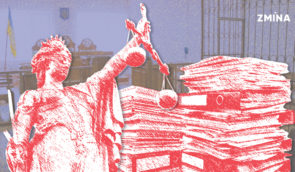
How the Ukrainian justice system deals with international crimes
ZMINA analyzed how Ukraine is currently dealing with Russian crimes and what else needs to be done to ensure real justice

“We no longer need to prove we have a right to exist”: USA veteran Lindsay Church on LGBTQ people and women in the military, inclusion and working with survivors
ZMINA spoke with US–Ukrainian Veterans Bridge strategic advisor and co–founder of Minority Veterans of America, Lindsay Church, about the real situation of LGBTQ people and women in the US military, as well as the challenges facing US and Ukrainian veterans, regardless of their sexual orientation and gender identity.

A story of Oleksandr Tarapon from Crimea, illegally convicted by Russia
On October 21, 2022, the occupation court of Alushta sentenced Oleksandr Tarapon to 2.5 years in a strict regime colony. He was charged with Article 207.3 (part 1) of the Criminal Code of the Russian Federation, namely, “public dissemination of knowingly false information about the use of the Armed Forces of the Russian Federation and the exercise of powers by state bodies of the Russian Federation.”
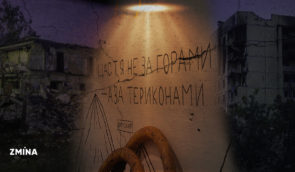
One day with volunteers in the destroyed Vuhledar, Donetsk region
The ZMINA journalist, together with volunteers Andriy and Roman from the Lion's Heart military volunteer association, managed to get to Vuhledar, which was burned by Russian shelling, and saw with her own eyes how this point of invincibility was being equipped
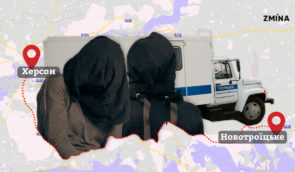
Three stories of women taken by Russians as civilian hostages from Kherson
Olha and Svitlana told ZMINA about how Russian occupying forces took prisoners, hastily prepared new cells for them, and held civilian hostages on the occupied left bank of the Kherson region
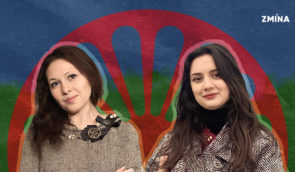
From education and activism to work in the Council of Europe: the stories of Roma women Zemfira Kondur and Viola Popenko
ZMINA talked to two Roma women – Zemfira Kondur and Viola Popenko, who work in an international organisation – the Council of Europe. There are currently only two such women in Ukraine, but every year there are more and more active Roma women.
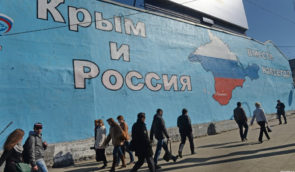
Fines and imprisonments: How Crimeans are persecuted for the truth about the war in Ukraine and dissatisfaction with the occupation
Consideration of protocols on administrative offense for 'discrediting the Russian army's actions' in the illegal "courts" on the Crimean Peninsula is connected with systemic violations of main standards of access to fair justice, the Crimean Process claimed
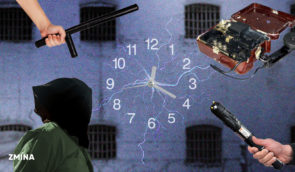
A typical day in a Russian prison (a diary of a civilian hostage)
ZMINA has obtained a diary written by one of the Kremlin’s prisoners, Dmytro (name changed for security reasons), which he secretly kept throughout his imprisonment. We also spoke with Yevgen Yamkovyi and Viacheslav Zavalnyi, who learned firsthand what the modern Russian penitentiary system is like
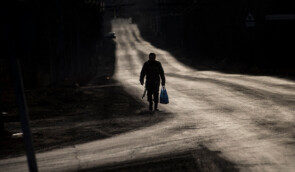
Four stories of missing persons in the occupied territories of Ukraine
ZMINA retells four stories about the abduction and disappearance of Mykola Harbar, a hunter; Vasyl, a handyman; Volodymyr Khorolsky, a territorial defense volunteer; and Artur Baranets, a policeman
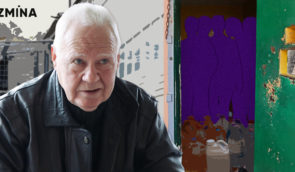
A story of an elderly man from Balakliya on a 12-day hunger strike in Russian captivity
Russian occupying forces took 73-year-old Viktor Illinsky from his home in Balakliya, Kharkiv region, in early August 2022. They wrapped a jacket around his head, put him in a military jeep, and drove him to the local police station.
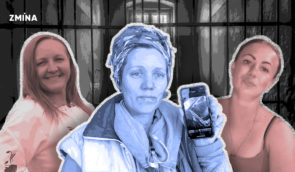
Three stories about the abuse and inhumane conditions for Ukrainian women prisoners
Read about how Russian forces detain women, the conditions in which they are held, and their treatment in Russian prisons in the stories of the director of a village club and a masseuse from Melitopol, Zaporizhzhia region, and a volunteer from Mariupol, Donetsk region, shared with ZMINA by the prisoners themselves or their relatives and friends
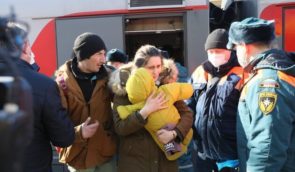
Signs of genocide: Russia’s crimes against children – Report
Human rights defenders concluded that these processes are carried out on the initiative and with the broad support of the Russian leadership, which aims to destroy the ties of Ukrainian children with their national group and make it impossible for them to return to Ukraine
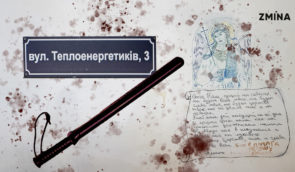
‘Women are not beaten here in Ukraine, but our hands are free’: How Russians held women in seized TDC in Kherson
At different times, at least 30 local women were held at a temporary detention center (TDC) in Kherson, including a policewoman, a housewife, a cadet of a military educational institution, and a head teacher of a gymnasium. This is described in the analytical report "‘Women's cells’ of Kherson torture chamber" which was prepared by Human Rights Centre ZMINA specialists based on testimonies of victims.
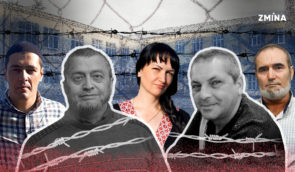
Gafarov-Shyring list: how Russia is killing political prisoners in Crimea
Tetyana Pechonchyk emphasized the importance of publicizing information about political prisoners. In her opinion, it is essential to tell the stories of illegally imprisoned Ukrainian citizens, spread them on social media and abroad, put pressure on Russia, initiate new resolutions of the European Parliament, and raise issues at the level of the OSCE and UN bodies so that Ukrainian citizens, political prisoners at risk with complex diseases, are released first and unconditionally
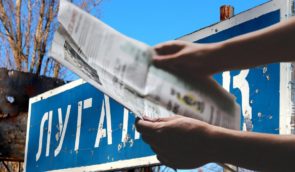
How to return Ukrainian journalism to the de-occupied territories?
ZMINA collected the opinions of journalists and experts
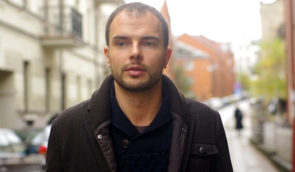
Lithuanian human rights advocate and documentarian Gediminas Andriukaitis: “Ukraine must be in NATO”
In the interview with ZMINA Andriukaitis shared his impressions of documentaries during Docudays UA Festival and told how Lithuania perceives Russia's war against Ukraine, and explained why Vladimir Putin tried to persuade European political elites for a long time that there is what he defines as a ‘special democracy’ in the Russian Federation
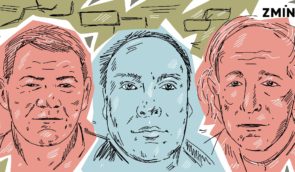
A story of a man spent two months in captivity in the Russian pre-trial detention center with other civilians and volunteers
Yevhen Yamkovyi, a resident of Kahovka, a city in the Kherson region on the left bank of the Dnipro river occupied by Russian forces, was detained at the checkpoint “Armyansk” in the northern part of the Crimean peninsula on January 6, 2023. Then, he was transferred to the pre-trial detention center No. 2 in Simferopol, where he met Oleksandr Babych, a mayor of the city Hola Prystan’, Yevhen Melnychuk, a Crimean resident, and Mariano Calatayud, a volunteer from Spain. In prison, he discovered that the Spaniard was tortured with an electric current, and the official was threatened with shooting. On March 7, 2023, Yevgen was released and left the occupied Crimea for Poland.

A witness account of abduction and torture in Hornostaivka village, Kherson region
Read a full witness testimony of Serhii, a Kherson region resident, about his abduction and torture experience. Due to safety concerns, ZMINA changed the name of the torture survivor
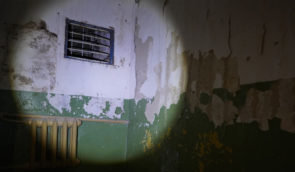
Torture as a policy of suppressing Ukraine’s resistance to the Russian invasion – Report
The analytical report, prepared by ZMINA, provides a detailed account of documented policies, locations, profiles of main targets among civilians, and portraits of typical perpetrators of Russian occupying forces in Ukraine who brutally mistreated people from the Kyiv, Kharkiv, and Kherson regions
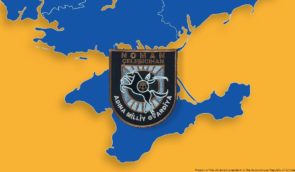
Over 30 citizens of Ukraine are persecuted for participation in the Noman Çelebicihan Crimean Tatar Volunteer Battalion
ZMINA discusses below one form of political persecution in the temporarily occupied territories, which includes cases related to the Noman Çelebicihan Crimean Tatar Volunteer Battalion
Columns
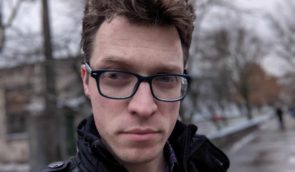
Torture in the occupied territories: global consequences of terror
ZMINA Human Rights Center has been documenting war crimes committed by representatives of the Russian Federation since the beginning of the large-scale invasion of Ukraine. In particular, it interviews victims of arbitrary detention, torture, and ill-treatment. Unfortunately, the practice of committing these crimes remains widespread and systemic. On December 7, Prosecutor General of Ukraine Andriy Kostin reported that 104 torture chambers had been discovered in the regions liberated from the occupiers. There is evidence that in the Zaporizhzhia region, the Ukrainian military found places of illegal detention and torture immediately after deoccupying new territories this past summer.
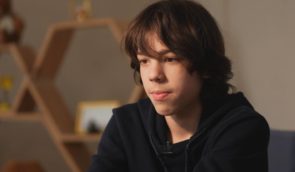
Life without basics: Struggle of Zakhar’s Family in war-torn Mariupol
We were lucky, because not all people were missed by shells and not all returned alive. More than a year has passed since the day we escaped from occupied Mariupol
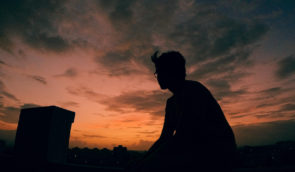
From Bakhchysarai to Vermont: а Crimean Tatar teen’s journey of resilience
On February 25, a few hours before the Russian tanks entered the city, we left Bucha and spent 40 hours on the road, heading towards the western Ukraine. We spent three months in the small town of Perechyn, and in June, after the de-occupation of Bucha, we returned to our hometown. A Russian shell hit between the eighth and ninth floors of our house, and our apartment, fortunately, remained intact
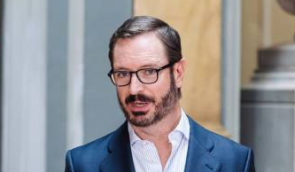
We should be more assertive in foreign policy amidst Russian propaganda
Javier Maroto noted that Western democracies are also suffering from the attacks of Putin's regime, in particular from disinformation spread by Russia. He also stressed the importance of political unity in supporting Ukraine outside the EU, as Russian propaganda has a great influence in other countries
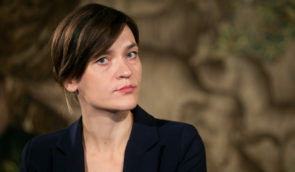
Ukraine must join NATO: eliminating security grey areas in Europe
We must stand with Ukraine until its total victory. That must be very clear to everyone: no semi-peace or other kind of settlements but a victory with regained occupied territories with Zelensky's Peace Formula.
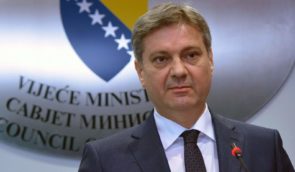
Lessons from Ukraine, Bosnia and Herzegovina must be learned to prevent future aggressions
Denis Zvizdić in his speech mentioned the experience of Bosnia and Herzegovina, the country that also faced aggression just 40 years ago. The whole world sees the struggle of Ukraine and Denis Zvizdić is proud of his country’s support. He is certain that the world must condemn every attack by any internationally recognized state everywhere
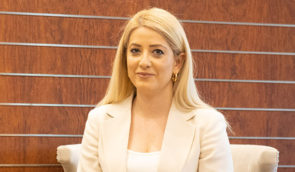
Zelenskyy’s Peace Formula is a good basis to start discussions for ending the war
At the beginning of her speech, Annita Demetriou emphasized that Russia's brutal invasion of Ukraine and its attempts to annex Ukrainian territory cannot be legitimized or justified
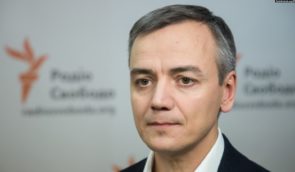
Liberation of Crimea essential for lasting peace in Ukraine and Europe
Expert at International Crimea Platform, Expert on Foreign and Security Policy, Deputy Chairman of the Board of the Institute for Strategic Black Sea Studies Olexandr Khara expressed his gratitude to all the nations taking part in this summit and for their support of Ukraine
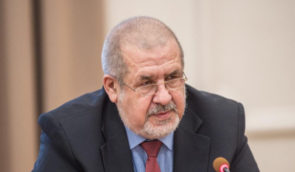
Reclaiming Crimea: the path to restoration and unity
All foreigners or stateless persons who have settled in the occupied Crimea and other temporarily occupied territories of Ukraine have deliberately committed a crime and must immediately leave Crimea, Refat Chubarov says
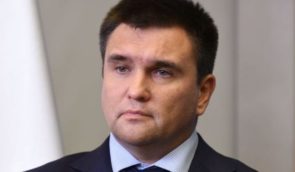
Postwar reconstruction: how Ukraine can find its voice in history
Today, we talk a lot about Ukraine’s postwar reconstruction and development. However, the focus is mostly on physical rebuilding. I think this is wrong because that’s not what it is all about. If we focus on the physical restoration of destroyed buildings and infrastructure, this country will not stand a chance against Russian pressure or any other reality that will emerge in its place.

A letter from unfreedom. Read a message from Bogdan Ziza, an artist and a Crimean political prisoner
According to human rights defenders, Russian occupying forces hold over 100 abducted Ukrainians, primarily civilians from the Kherson and Zaporizhzhia regions of Ukraine, in the temporarily occupied Crimea. Civilian hostages are allegedly kept in the pre-trial detention center No.2 in Simferopol, the center of the Crimean peninsula
News
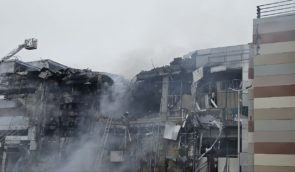
Russia killed 58 Ukrainians on December 30 while Republicans in the US Congress blocked military aid to Ukraine (updated)
Russia shelled 158 missiles, 118 were shot down, and at least 28 people have been killed, as of 15:30 GMT
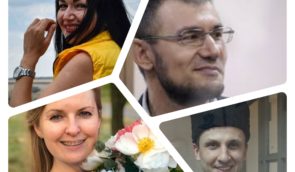
Silent suffering: Crimean human rights defenders and a humanitarian volunteer from Kherson deprived of adequate medical care in Russian captivity
Front Line Defenders, Human Rights Watch and Physicians for Human Rights strongly condemn the denial of adequate medical care to human rights defenders in captivity in Russia
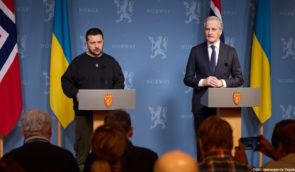
If Hungary blocks EU decision to start accession negotiations with Ukraine, it means Putin’s veto – Zelenskyy
The Ukrainian president noted that Ukraine has done everything to prevent any country from blocking the start of negotiations, but “there is a block from Hungary, and that is a fact.”
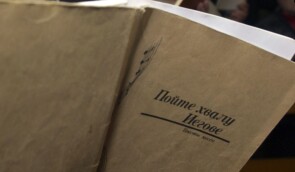
Russia persecutes at least 25 Crimean residents for their faith as Jehovah’s Witnesses
As reported by “Jehovah’s Witnesses”, at least 25 Crimean residents have been persecuted for their faith. Six of them have been serving sentences in the penal colonies
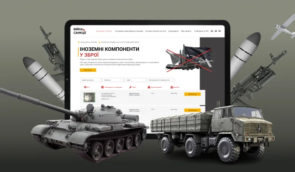
Ukraine’s groundbreaking database exposes foreign components in Russian and Iranian weaponry, raising concerns about international supply chains
Information on the type of weapon, its manufacturer, and technical specifications is available for each component. This information will empower anyone, from investigative journalists to government officials, to gather sufficient evidence, investigate supply chains, and bring those who facilitated this war to justice
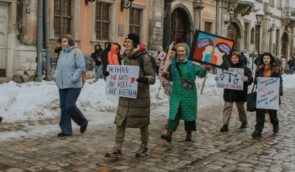
Activists held a rally on the issue of violence against women in Lviv
According to the activists, there is a myth that in the Ukrainian tradition, women were given only a sacred, special place as guardians and mothers. However, the truth is different. Historically, the situation of women in Ukraine has been very dire
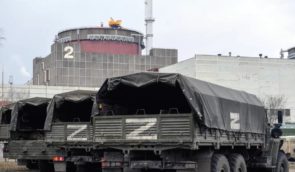
Threat to radiation safety: Zaporizhzhia Nuclear Power Plant loses power supply due to damaged transmission line
Ukrenergo, Ukraine's national energy company, reported that all 20 diesel generators were automatically activated, with eight of them remaining in operation
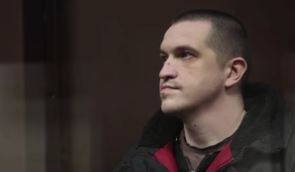
“I was defending my home”: Ukrainian soldier Pavlo Zaporozhets illegally sentenced to 12 years’ imprisonment in Russia
Zaporozhets pleaded not guilty to the charges. Refusing trial under the Criminal Code, he asserted that as a soldier, he should be tried under the Geneva Convention

Nestlé listed as an international war sponsor by Ukraine’s anti-corruption agency
When Nestle announced the suspension of exports and imports to Russia, except for “essential and basic goods for the local people,” it gave the mistaken impression that it planned to leave, according to Oleksandr Novikov, the head of the corruption prevention agency
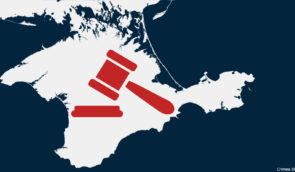
CrimeaSOS calls for sanctions against Russian and illegitimate judges in occupied Crimea for violations of the right to a fair trial in fabricated criminal cases against Ukrainian citizens
Crimea SOS emphasizes that Russian judges and illegal “judges” in the temporarily occupied Crimea shall be held liable for the abovementioned violations within the Ukrainian jurisdiction, the International Criminal Court or under the mechanism of universal jurisdiction and shall be subjected to personal sanctions
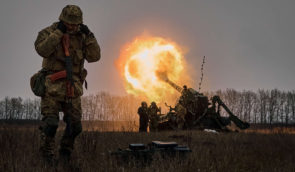
Russia’s military budget is more than twice as large as Ukraine’s in 2024. Support from international partners is crucial – Minister Marchenko
Serhii Marchenko is sure that the reason for what is happening in the Middle East is also due to the international community's insufficient response to Russia's war against Ukraine
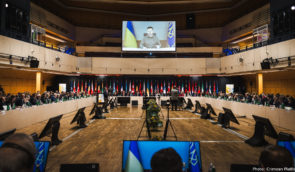
Parliamentarians from 51 countries reaffirmed Ukraine’s territorial integrity: Key moments from the Second Parliamentary Summit of the International Crimean Platform
At the end of the plenary session, a Joint Declaration was signed by the participants of the summit, affirming the territorial integrity of Ukraine within its internationally recognized borders, including Crimea and Sevastopol, as well as assurance of the sovereignty of Ukraine as necessary preconditions for ending the war and establishing lasting peace in the region
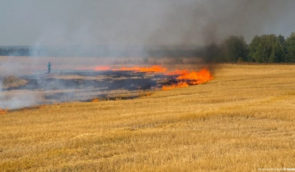
Ghana and Sierra Leone сall on Putin to halt Russian aggression as it damages Africa
Asiamah Amoako pointed out that the Russian war against Ukraine and the occupation of Ukrainian territories has brought "untold hardships, including even hunger," to other parts of the world, including his country

Trade ministers from G7 condemns Russian attacks on Ukrainian grain infrastructure
Russia has systematically targeted Ukraine's grain and port infrastructure since withdrawing from the agreement that allowed Kyiv to export its grain, which is crucial for global food security
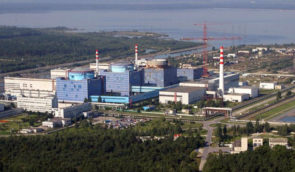
Khmelnytskyi Nuclear Power Plant was likely the target of Russian drones last night – Zelenskyy
The Ukrainian president pointed out that every Russian strike, especially ones as audacious as those targeting nuclear plants and other critical facilities, is an argument that the pressure on the terrorist state is insufficient
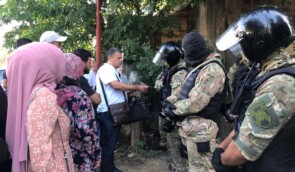
Russia is slowly killing the Crimean Tatar people in the temporarily occupied peninsula – Mufti of Crimea
The Mufti of Crimea and Chairman of the Religious Administration of Muslims in Crimea, Aider Rustemov, declared that Russia is systematically oppressing the Crimean Tatar people in the temporarily occupied peninsula
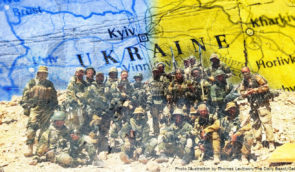
An expert from Burkina Faso calls on the international community to support democratic forces in African countries where the Wagner Group operates
Experts called on the international community to take action to bring the Wagner Group to justice and support democratic forces in African countries where the Wagnerites operate
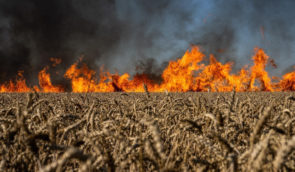
Experts call for a new global security paradigm against the Russian threat
Klishch emphasized the importance of implementing an exclusively Ukrainian formula for peace, as only Ukraine has the right to determine the conditions for ending the war. He believes that reevaluation of many aspects of the international order is inevitable to ensure the interaction of security and development
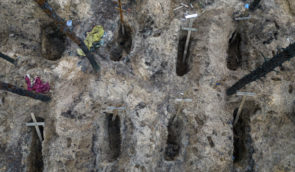
States from all continents urged to join the coalition to create a special tribunal for Russia
Ambassador-at-large of the Ministry of Foreign Affairs of Ukraine Anton Korynevych stresses the need to join forces to demonstrate that dictatorial regimes are responsible for their crimes, and thus, together with international partners, the world needs to prevent future conflicts and wars
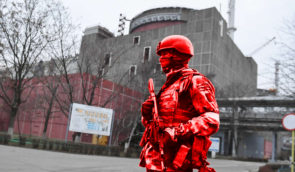
Ukraine сalls for international action on revision of safety rules to protect nuclear power plants
Secretary of the Committee on Fuel Energy, Nuclear Policies and Security at International Center for Ukrainian Victory (ICUV) Viktoria Voitsitska called on international politicians and decision-makers to stop using the International Atomic Energy Agency (IAEA) as an excuse to close their eyes towards Russian terrorism
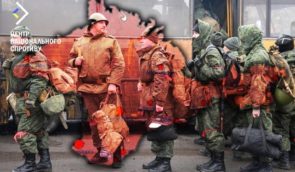
Despite international law, occupying authorities in Crimea order conscription of 2,500 locals
Russia also prosecute citizens of Ukraine in Crimea for evading service in the RF Armed Forces. As of 30 June 2023, the Crimean Human Rights Group has documented at least 468 criminal cases under RF CC Article 328 (“evading the service in the Armed Forces of the Russian Federation”) sent to illegal “courts” in the occupied peninsula
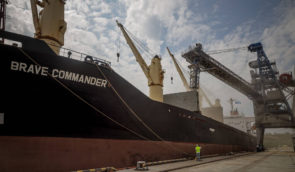
The intelligence of the Great Britain accuses Russia of intending to mine grain corridor
Russia aims to refrain from openly causing the sinking of civilian vessels, instead "falsely laying blame" on Ukraine for conducting any attacks on civilian vessels in the Black Sea
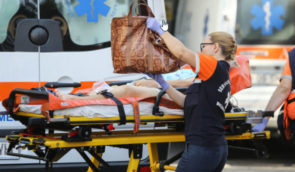
Over 1300 Ukrainian children have been evacuated abroad for treatment since Russia’s war
Ukrainian children and adults with complex mine-blast wounds, burn injuries, oncological pathology, and diseases requiring complex, specialized treatment can be evacuated for treatment in foreign clinics
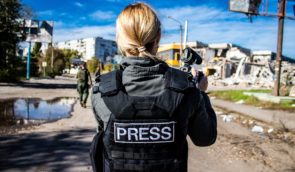
Law enforcement investigates 19 cases of journalists killed by Russians during full-scale invasion
Law enforcement officers are investigating 19 cases of journalists killed by Russians on the territory of Ukraine during the full-scale invasion, according to the information from the Prosecutor General’s Office of Ukraine regarding the status of investigations into the murders of journalists who died in the line of duty or as civilian victims of shelling. Institute of Mass Information, a non-profit organization that documents journalists’ rights violations and press freedom, reports.

Bloody Sparkles: Indian diamond giant Shree Ramkrishna Exports lands on List of International War Sponsors
About three-quarters of the diamonds come from Russia, but they are not accompanied by any official documents that could confirm their origin, according to a statement by the NAPC
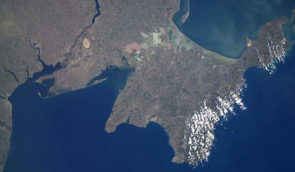
Ukrainian government unveils blueprint for Crimea’s economic future
The government believes that this economic model will help to rebuild Crimea and "make it a prosperous and attractive place to live and work"
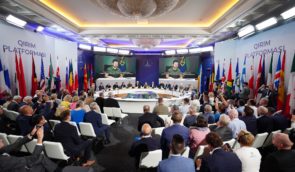
“We Build Crimea” portal launched to unite businesses for the restoration of Crimea after its de-occupation
ZMINA explains what the portal "We Build Crimea" is about, who it is intended for, and what opportunities it offers to both the Ukrainian peninsula and its residents
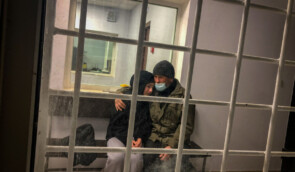
Over the past two years, 10 mass detentions of Crimean Tatars registered in Crimea
Since the beginning of 2021, at least 10 mass detentions have occurred in the temporarily occupied Crimea. Most incidents occurred near the buildings of Russia’s government institutions
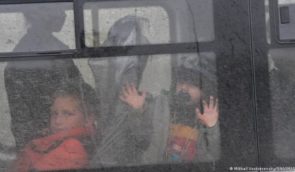
Activists identified the route by which children from the occupied Ukrainian territories are deported to Belarus
The group presented its findings in a research paper released in early August 2023

LGBTIQ+ couple of a servicewoman and an activist got “married” in Kharkiv
Stanislava is a local activist in the LGBTQI+ and feminist movements. Alina is a military officer from the Kharkiv region, currently serving as a captain and a brigade staff officer
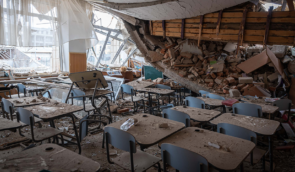
More than 180 educational institutions in Kyiv region, destroyed by Russians, restored
136 schools and 175 kindergartens were located in the combat zone or on the temporarily occupied territory. Before the full-scale invasion of the Russian army, more than 52,000 students and almost 15,000 kindergarteners were studying there

Ukrainian Institute presents an English-language guide on Ukrainian culture, personalities, and events
On Ukraine’s Independence Day, the Ukrainian Institute, a governmental agency focused on promoting Ukrainian culture, launched Insight UA, an English-language comprehensive guide to Ukrainian culture, personalities, and events, as noted in its press release.
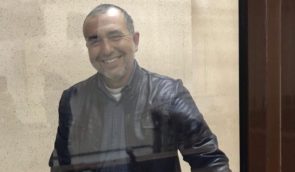
Political prisoner Rustem Seytmemetov’s health deteriorates
Political prisoner Rustem Seytmemetov’s eyesight has fallen, his blood pressure is constantly jumping, and his legs swell due to the hot weather – because of this, he has to take medication all the time.
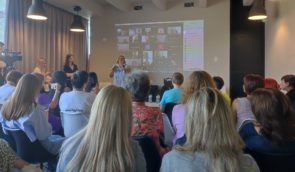
Families of POWs and missing persons unite to oversee the work of state bodies in Ukraine
The families of prisoners of war (POWs) and missing persons believe that Ukraine’s government’s plan to transfer the Commissioner for Missing Persons functions to three different agencies will significantly impair the families’ ability to communicate directly with the authorities and search for their loved ones. Therefore, they plan to create an association of civil society organizations to control the agencies involved in this issue.

Almost 80% of Ukrainian refugees and IDPs plan to return home, UN study
76% of refugees and 82% of internally displaced Ukrainians plan to return home whenever possible. At the same time, about 15% of both refugees and internally displaced persons (IDPs) say they want to do so within the next three months.
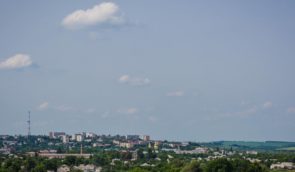
Older people and some families with children refuse to leave the evacuation areas in Kharkiv region
The head of the Kupyansk city military administration emphasized that the evacuation is not mandatory, so those who do not want to leave can refuse by writing a statement
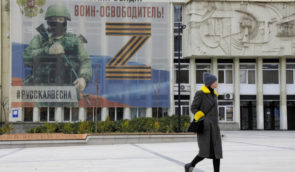
Crimean Human Rights initiative sounds alarm over decreasing healthcare for civilians in occupied Crimea
According to Qirim Gayesi, the maintenance of healthcare institutions has been severely compromised since the onset of the Russian invasion. Heads of medical institutions in Crimea were instructed to send surgeons and surgical nurses to the Ministry of Defense of the occupying country
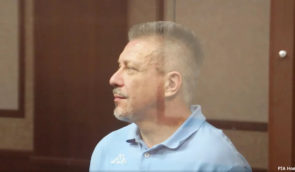
Crimean political prisoner Dmytro Shtyblikov is kept isolated
Human rights defenders recall that on November 8, 2021, Dmytro Shtyblikov was to be released after serving a five-year sentence

14% of Ukrainian journalists and bloggers faced wiretapping and surveillance, and 40% received threats – IMI
According to the Institute of Mass Information (IMI), a prominent human rights and media organization, 68% of media professionals and 82% of bloggers have faced increased cyber attacks since the beginning of Russia’s full-scale war in Ukraine.
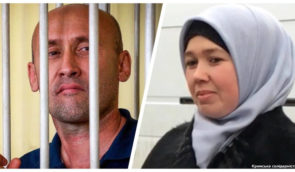
The health of political prisoner Zevri Abseitov has significantly deteriorated
Fatma Abseitova, Zevri’s wife, visited her husband with their children in Stavropol colony No. 1 in the village of Kochubeevskoye in the Russian Federation

More than 500 Ukrainian doctors are in Russian captivity
More than 500 Ukrainian healthcare workers, both civilian and military, are currently being held captive by Russian occupying forces. According to Andriy Kryvtsov, head of the NGO Military Medics of Ukraine, they are subjected to ill-treatment and torture in prisons.
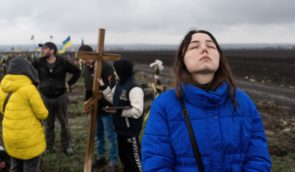
Almost 16% of respondents across Ukraine said they had witnessed Russian war crimes
Almost 16% of Ukrainians across the country said they had witnessed Russian war crimes.
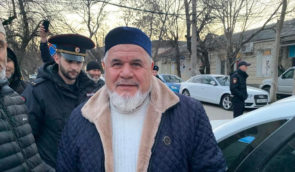
Russian occupying forces in Crimea detained 66 Crimean Tatars since January 2023
Crimean human rights activists recorded 140 cases of arrests on the peninsula, 93 of which were against members of the indigenous Crimean Tatar people. There were also 37 searches, 29 of them in the homes of Crimean Tatars
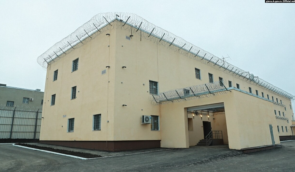
A resident of Nova Kakhovka, abducted three times, was found in one of the Simferopol detention centers
Russian occupying forces tortured the man and tried to find out whether Leonid Adolfovych Kondratsky was the great-grandson of Adolf Hitler
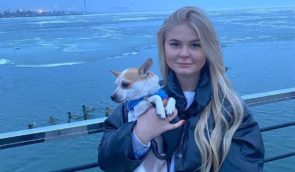
Mariupol policewoman Mariana Chechelyuk’s health has deteriorated significantly over the year of captivity
For a year, the occupiers transported the woman from one prison to another, subjected her to physical and psychological pressure, and created unbearable detention conditions. Currently, Mariana Chechelyuk needs medical care, which is not provided to her in the Taganrog detention center
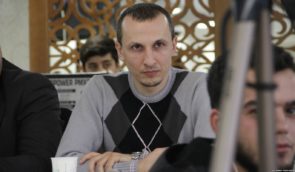
Political prisoner Server Mustafayev shares about poor conditions in Russian prison and lack of medical aid
Maye Mustafayeva and her and Server’s children, eight-year-old Yusuf and five-year-old Naji visited the political prisoner in Tambov prison. The family was allowed to come for an extended three-day visit from July 3 to 6
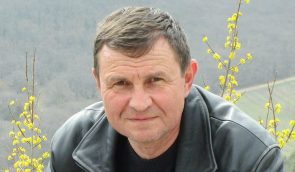
Health condition of a Crimean political prisoner Volodymyr Dudka deteriorates
The health condition of the Crimean political prisoner Volodymyr Dudka is deteriorating. Russian occupying forces do not provide him with medical care, according to Ilya Dudka, the son of Volodymyr Dudka.
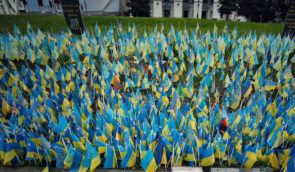
Almost 80% of Ukrainians have relatives or friends wounded or killed due to Russia’s war
The vast majority of Ukrainians – 78% – have close relatives or friends who have been injured or killed by the Russian invasion, according to the results of a sociological survey conducted by the Kyiv International Institute of Sociology (KIIS) on May 26-June 5, 2023.
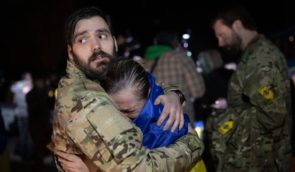
126 Ukrainian women are in Russian captivity, most of them civilians
Twenty-three women in captivity have children: 14 military women have 23 children, and nine civilians have 15
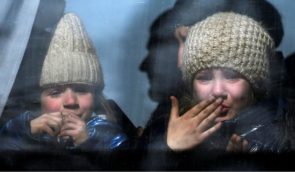
Russians handed under “preliminary custody” over a thousand children deported from Ukraine
According to the data collected by Vazhnye Istorii, at least three times more children may be transferred to Russian families than the official claims

Occupation authorities in Ukrainian Crimea accused of using administrative resources to justify Russia’s war
The occupying authorities regularly receive plans to collect "voluntary" aid for the Russian military, which are often funded by Crimean entrepreneurs. Representatives of businesses fear to disapprove of the imposed support for the Russian army due to potential repercussions from occupying bodies
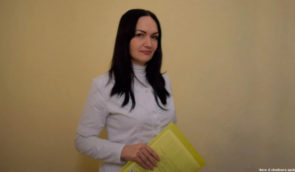
European human rights court will review a complaint on the illegal detention of a Crimean journalist Iryna Danylovych
For almost ten days, Danylovych’s family did not know about her whereabouts, and she did not have any access to a lawyer
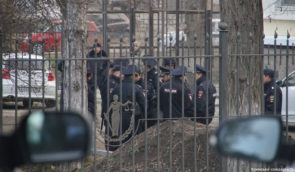
Human rights crisis in occupied Crimea: wave of persecution targeted voices against Russia and its war in 2022
Crimean human rights defenders characterized the crackdown on dissent in the occupied Crimean Peninsula as part of a broader campaign by the Russian authorities to silence all opposition to their policies in the region
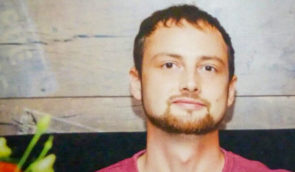
Volunteer Yaroslav Zhuk stated that he was tortured in the Rostov pre-trial detention center
Yaroslav Zhuk made a statement about torture with a shocker and brutal beating by officials of the Rostov-on-Don pre-trial detention center as soon as the court hearing in his case based on trumped-up charges began in early June of this year. Zhuk is a car mechanic and a resident of Melitopol, a city in the Zaporizhzhia region occupied by Russian forces since the full-scale invasion of Ukraine.
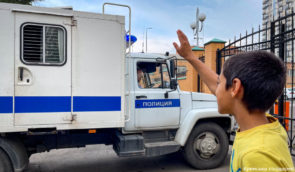
Russian occupying forces detained at least 18 Crimeans to check their involvement in subversive actions during the last months
Human rights defenders in Crimea suspect that the number of enforced kidnappings and detentions among Crimean Tatars, in fact, is much higher. People may conceal these incidents, fearing further repressions

Moscow court detained Crimean Tatar Leniie Umerova, who traveled to her cancer-stricken father in the temporarily occupied Crimea, on ‘espionage’ charges.
According to the Mission of the President of Ukraine in the Autonomous Republic of Crimea, the girl did not even have time to finish her previous administrative detention, when she was abducted by the FSB and taken to Moscow, to the Lefortovo detention center
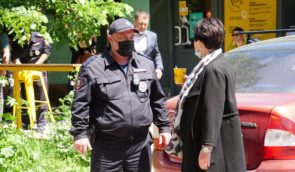
Qirim Gayesi: Russian-installed law enforcement agencies threatened and attacked іndependent lawyers in temporarily occupied Crimea in 2022
From the first days of the invasion, Russian-installed law enforcement agencies began unofficially threatening lawyers that they would be subjected to martial law. Later, a series of attacks ensued, including the arrest of lawyers, disbarment, and blocking of their mobile connections

Russian forces continue to violate the property rights of Ukrainians in temporarily occupied Crimea, flouting the Geneva Convention – Crimean human rights defenders
The confiscation of properties violates international law and highlights the ongoing aggressive policies of the Russian occupiers
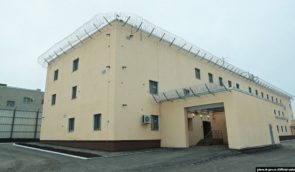
Kidnapped Ukrainians are subjected to torture both by the Russian military and FSB – Crimean human rights defenders
When the full-scale invasion started, monitors of the Crimean Human Rights Group (CHRG) have begun to get information from the occupied settlements of the Kherson and Zaporizhzhia regions that Ukrainian civilians abducted in these territories by the Russian military, the Rosguard, or the FSB are being transported to places of detention in Crimea




